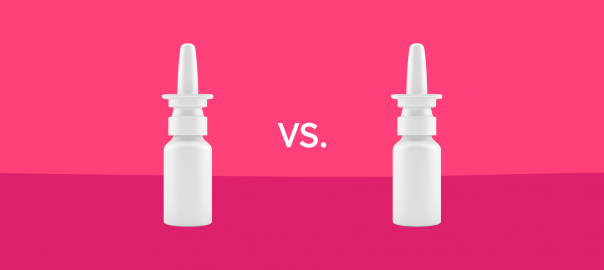Mark Halsey is a licensed therapist, founder, and chief editor of Clean Break Recovery. With over a decade of addiction treatment experience, Mark deeply understands...Read more
Are you one of those people who have heard that Flonase is a stimulant? You may be surprised to learn that this is not the case – Flonase is actually an anti-inflammatory medication that is used to treat allergies and the symptoms of allergic rhinitis. In this article, we will discuss what Flonase is, how it works, and why it is not a stimulant. So, if you have been wondering if Flonase is a stimulant, read on as we answer this question and provide you with the facts.
No, Flonase is not a Stimulant. Flonase is a nasal spray that is used to treat the symptoms of allergic rhinitis, such as a runny, itchy, or stuffy nose. It belongs to a class of medications called corticosteroids, which are anti-inflammatory drugs. It works by blocking the release of certain inflammatory substances that are involved in allergic reactions.

What is Flonase?
Flonase is a popular brand of over-the-counter steroid nasal spray used to treat a variety of allergies, including hay fever, indoor allergies, and pet allergies. It is a corticosteroid, meaning it is derived from a natural hormone produced by the adrenal glands called cortisol. This hormone helps to reduce inflammation and relieve nasal symptoms like congestion, itching, and sneezing. Flonase is available in both prescription and over-the-counter forms.
How Does Flonase Work?
Flonase works by reducing the inflammation in the nasal passages, thus reducing the symptoms of allergies. It does this by inhibiting the release of histamine and other inflammatory substances from the cells. This helps to reduce swelling, congestion, and other symptoms of allergies. Flonase also has some anti-allergy effects, meaning it can help to prevent allergic reactions.
Is Flonase a Stimulant?
No, Flonase is not a stimulant. It is an anti-inflammatory medication that works by reducing the inflammation in the nasal passages, thus reducing the symptoms of allergies. It does not have any stimulant effects and is not addictive. It is not a controlled substance and does not have any known side effects when taken as directed. Therefore, Flonase is not a stimulant.
What are The Uses of Flonase?
Flonase is used to treat a variety of allergies, including hay fever, indoor allergies, and pet allergies. It is also used to treat nasal congestion, itching, and sneezing. Flonase can be used in both adults and children. It is available in both prescription and over-the-counter forms.
What are The Side Effects of Flonase?
The most common side effects of Flonase are nasal irritation and an unpleasant taste in the mouth. Other side effects may include coughing, sneezing, headache, nosebleeds, and nausea. It is important to talk to your doctor about any side effects you may experience.
Can Flonase be Used Long-Term?
Yes, Flonase can be used long-term if necessary. It is important to talk to your doctor about any long-term use of Flonase. If you have any questions or concerns about using Flonase long-term, it is best to speak with your doctor.
Few Frequently Asked Questions
Q1: What is Flonase?
A1: Flonase is an over-the-counter nasal spray medication used to treat nasal allergies, such as hay fever and other forms of nasal congestion. It works by blocking the release of certain inflammatory substances in the body which cause nasal congestion and other symptoms. Flonase comes in a variety of forms, including nasal sprays, tablets, and liquids.
Q2: Is Flonase a Stimulant?
A2: No, Flonase is not a stimulant. It is an anti-inflammatory medication which works by blocking the release of certain substances in the body which cause nasal congestion and other symptoms. Therefore, it does not stimulate the body in the same way that a stimulant does.
Q3: What are the Side Effects of Flonase?
A3: Common side effects of Flonase include dry mouth, sore throat, and nosebleeds. Other side effects may include headaches, nausea, dizziness, and nose and throat irritation. If these symptoms are severe or persist, it’s important to contact a doctor.
Q4: How Often Should Flonase be Used?
A4: Flonase should be used as directed by a doctor. Generally, it is recommended to use it twice daily, once in the morning and once in the evening. It may be used more frequently if needed, but it’s important to follow the instructions given by a doctor.
Q5: Is Flonase Safe for Children?
A5: Generally, Flonase is considered safe for children over the age of four. However, it’s important to consult a doctor before giving any medication to children. The dosage may need to be adjusted depending on the child’s age and weight.
Q6: Is Flonase Prescription Only?
A6: No, Flonase is available over-the-counter without a prescription. However, it’s important to follow the instructions given by a doctor or pharmacist when using this medication. If symptoms persist, it’s important to contact a doctor.
Flonase
No, Flonase is not a stimulant. It is a corticosteroid, which helps reduce inflammation in the nose and airways. While corticosteroids can have some stimulant-like effects, these are not the same as the stimulants found in everyday medication and supplements. Flonase is a safe and effective way to reduce inflammation and help manage your allergies.
Mark Halsey is a licensed therapist, founder, and chief editor of Clean Break Recovery. With over a decade of addiction treatment experience, Mark deeply understands the complex needs of those struggling with addiction and utilizes a comprehensive and holistic approach to address them. He is well-versed in traditional and innovative therapies, including cognitive-behavioral therapy, motivational interviewing, and mindfulness-based interventions.
More Posts